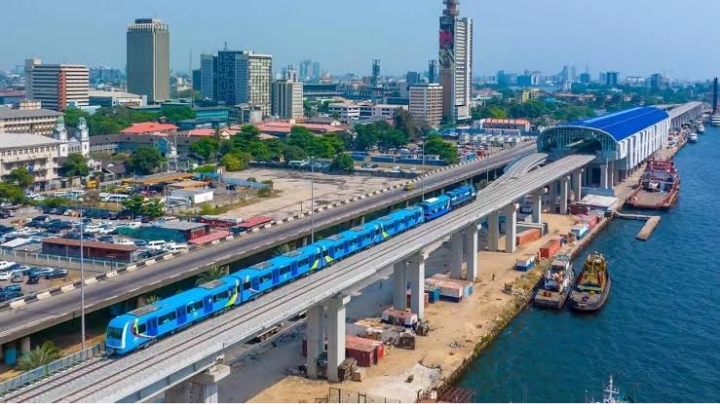Lagos is a city like no other. Spanning less than 4,000 square kilometers — a third of which is water — it is home to over 20 million people. It is Nigeria’s smallest state by land mass, yet its largest by population and economic activity. It is a city that never sleeps, always moving, constantly buzzing, full of contrasts and contradictions.
At the heart of Lagos’ urban complexity is a unique challenge: land ownership. While the law says land belongs to each state government, the reality is more complex. Much of the land in Lagos is still traditionally owned by families and communities. As a result, development is often driven by individual choices rather than coordinated plans. People build where and how they want — often with little regard for urban planning regulations or environmental sustainability.
This lack of centralized planning has left much of the city disorganized and chaotic. Roads are narrow and congested. Buildings are erected haphazardly. Drainage systems are often blocked, underdeveloped, or completely absent in some areas. And when the government tries to bring order — enforcing planning laws, reclaiming illegal structures, or restoring drainages — it is met with resistance. There are protests, litigations, online outrage, and emotional media campaigns. Instead of cooperation, we often get confrontation.
Welcome to Lagos — a city trying hard to reform, yet frequently held back by its own residents.
The environmental crisis in Lagos is a shared one. Too many of us contribute to the problem while expecting the government to magically fix everything. We see people disposing waste directly into drainages, which inevitably become clogged. Dirty water is poured into the streets. Garbage is tossed out of moving vehicles, especially during rainfall, when people wrongly believe it will be washed away without consequences.
Perhaps more worrying is that over 60 percent of Lagos residents do not pay for waste disposal. Where they do, it is often heavily subsidized. Many have never paid a single naira for environmental services, yet they demand cleaner streets and efficient waste management. In some communities, sewage water is channeled directly into gutters, and yet we complain that the city smells.
We love to project beauty — the flashy makeup, the carefully curated social media posts, the designer clothes. But beneath the surface, many of us are doing everything possible to ruin our environment. And when it fails, we are the first to raise our hands in frustration, blaming the government, accusing officials, and demanding change — often without acknowledging our own role in the mess.
Government is not God. It is made up of human beings like you and me. It functions better when citizens play their part. A city is only as clean and efficient as the people living in it allow it to be. Lagos will not transform by wishful thinking. It will take collective effort.
One public official who has embodied this call to action is Mr. Tokunbo Wahab, the Commissioner for the Environment and Water Resources. Since assuming office, he has been a visible force — enforcing urban planning laws, leading environmental clean-ups, and holding people accountable. He has taken bold steps to restore sanity to the built environment, often at personal and political cost.
Yet, instead of being applauded, he is frequently vilified. His efforts to enforce planning regulations are misrepresented as oppression. His attempts to clear illegal structures are met with misinformation and emotionally charged opposition. But behind every structure demolished, every street cleared, and every drainage unblocked, lies a deeper goal: to make Lagos safer, cleaner, and more livable for everyone.
And in spite of all the challenges, Lagos continues to thrive.
Recently, Time Out, a UK-based lifestyle and travel magazine, listed Lagos among the top 20 cities to visit in the world. That recognition wasn’t handed out of pity — it’s a reflection of Lagos’ infectious spirit, dynamic culture, and growing global appeal. The city is the epicenter of Nigeria’s tech boom, a rising hub for startups and venture capital in Africa. It’s also home to the wealthiest Black man alive and hosts the world-famous “Detty December” — a month-long celebration of concerts, festivals, and street parties that attract visitors from around the world.
Lagos is a city of immense potential, but also immense responsibility. If we truly love this city — its energy, its resilience, its beauty — then we must treat it better. That starts with proper waste disposal, obeying urban planning laws, paying for the services we use, and holding ourselves to a higher standard of citizenship.
The smell of Lagos may be unforgettable — for better or worse — but whether that smell becomes a symbol of growth or decay is up to all of us.

